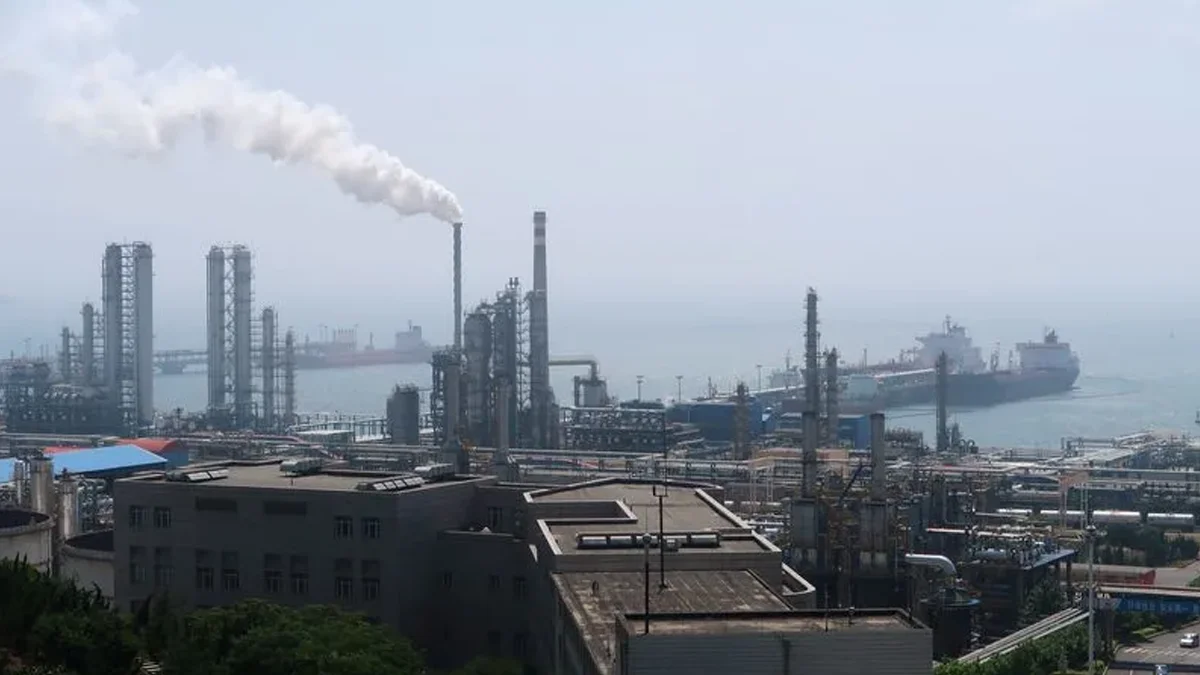Necessary Always Active
Necessary cookies are required to enable the basic features of this site, such as providing secure log-in or adjusting your consent preferences. These cookies do not store any personally identifiable data.
|
||||||
|
||||||
|
||||||
|

The China refining sector shakeout has begun, with a turnabout in the energy landscape of the country. With fuel demand peaking, analysts forecast a restructure in China’s refining sector, which has long dominated global crude oil imports.
As demand slows down, competition intensifies, and new challenges arise, smaller and less efficient refiners may face extinction. As per Yahoo Finance, around 10% of the Chinese oil refining factories may close in the next 10 years. This is happening because the Chinese Refining Sector will face the surge in demand sooner than expected while the government pushes to cut costs.
With the increasing curbs and sanctions on Chinese manufacturers, a lot of small factories for oil refining will lose their access to cheap crude oil from countries like Iran, according to analysts and industry players.
“The growth era for China’s refining industry is coming to an end,” said an industry analyst. “Refiners will have to adapt to a changing market where efficiency and sustainability play a bigger role.”
The China refining sector has been a major driver of global crude oil imports, absorbing vast quantities of oil to meet domestic and export demands. However, as fuel consumption stabilizes and refiners optimize production, China’s appetite for crude may wane.
A decline in global crude oil imports from China could have far-reaching consequences. Major oil-producing nations, including Saudi Arabia and Russia, may need to adjust their export strategies. Additionally, refiners in other parts of Asia, such as India and South Korea, could see shifts in market dynamics as China refocuses on efficiency rather than expansion.
As the shakeout in China’s refining sector intensifies, smaller and older refineries face the risk of being shut down. Large state-owned refiners like Sinopec and PetroChina are likely to continue their lead, while independent refiners, also known as “teapots,” are likely to be at a disadvantage. With China becoming one of the major consumers of Electric Cars, petroleum refineries are facing a major setback
The government has cracked down on small refineries lately, denying the smaller refineries crude import quotas and tightening up the environmental standards. This already led to a few plant shutdowns and has forced others to upgrade their operations. This is expected to be a trend because the industry needs to consolidate its efforts in relation to the new energy landscape.
China played a critical role in the dynamics of exported fuels, as it supplied refined products like gasoline and diesel to markets all over Asia. However, changes in domestic consumption and stricter export policies will change China’s influence over global fuel supply.
China would probably focus on the production of higher-value petrochemical products instead of trying to be another refining hub of the world, said industry observers. “The future of China’s refining sector may lie in chemicals and alternative energy sources rather than just fuel production,” said one energy strategist.
The China refining sector shakeout signals a critical transformation in the country’s energy market. With the fuel demand peak nearing and global crude oil imports readjusting, refiners have to adjust to a new reality. With changing fuel export dynamics, China’s refining industry is at a critical juncture, one that may redefine its role in the global energy landscape.